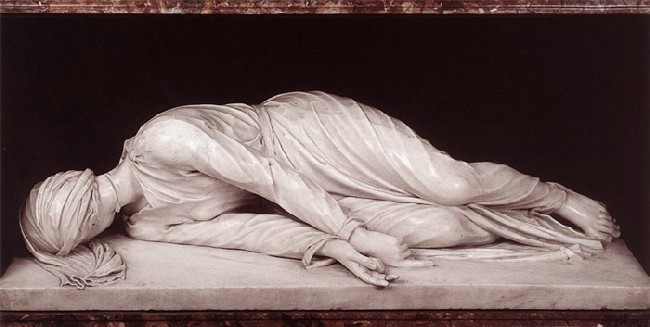
Picture by cohdra
[Click picture to enlarge]
My wife and I are reading and discussing Cassian's "Conferences". Here is my first blog on our Cassian reading 1.
Cassian's classic book made me want to go to the old well of Eastern monasticism. I want to understand the ascetic life as Cassian, St. Anthony of Egypt, and the other early writers understood it.
My wife and I are amazed at the concise presentation of the monastic way in Cassian's "Conferences." All extraneous ideas are omitted.
The abbots who present the conferences portray the monastic process in an orderly manner — no fluff or fog. They describe the goal and the path to attain it.
Although details matter, the "Conferences" are not intellectually complex. Hey, that's for me. It is a way of beginning as St. Benedict says in Chapter 73 of the Rule 2.
Abbot Moses is the main speaker in the following excerpt from "Conferences" #1:
Wherefore, said he, answer and tell me what is the goal and end, which incite you to endure all these things so cheerfully.Christian monasticism has at least an 1,800-year track record. That history goes a long way to validate both the principles and the practices given by desert abbots and writers of monastic rules: Here is a way to dwell in the tent of God, begin here.
AND when he insisted on eliciting an opinion from us on this question, we [Cassian and Germanus] replied that we endured all this for the sake of the kingdom of heaven.
TO which he [Abbot Moses] replied: Good, you have spoken cleverly of the (ultimate) end. But what should be our (immediate) goal or mark, by constantly sticking close to which we can gain our end, you ought first to know.
And when we frankly confessed our ignorance, he proceeded:
The first thing, as I said, in all the arts and sciences is to have some goal, i.e., a mark for the mind, and constant mental purpose, for unless a man keeps this before him with all diligence and persistence, he will never succeed in arriving at the ultimate aim and the gain which he desires.
For, as I said, the farmer who has for his aim to live free from care and with plenty, while his crops are springing has this as his immediate object and goal; viz., to keep his field clear from all brambles, and weeds, and does not fancy that he can otherwise ensure wealth and a peaceful end, unless he first secures by some plan of work and hope that which he is anxious to obtain.
The business man too does not lay aside the desire of procuring wares, by means of which he may more profitably amass riches, because he would desire gain to no purpose, unless he chose the road which leads to it.
And those men who are anxious to be decorated with the honours of this world, first make up their minds to what duties and conditions they must devote themselves, that in the regular course of hope they may succeed in gaining the honours they desire.
And so the end of our way of life is indeed the kingdom of God. But what is the (immediate) goal you must earnestly ask, for if it is not in the same way discovered by us, we shall strive and wear ourselves out to no purpose, because a man who is travelling in a wrong direction, has all the trouble and gets none of the good of his journey.
And when we stood gaping at this remark, the old man proceeded:
The end of our profession indeed, as I said, is the kingdom of God or the kingdom of heaven: but the immediate aim or goal, is purity of heart, without which no one can gain that end: fixing our gaze then steadily on this goal as if on a definite mark, let us direct our course as straight towards it as possible, and if our thoughts wander somewhat from this, let us revert to our gaze upon it, and check them accurately as by a sure standard, which will always bring back all our efforts to this one mark, and will show at once if our mind has wandered ever so little from the direction marked out for it.
__________________________
Footnotes:
Picture is Copy_of_100_2640cpy.jpg by cohdra and is used subject to license.
1 The first blog on our reading of Cassian's "Conferences" is titled, "Cassian – Our Summer Reading." I wish I had titled it "Cassian – Our Reading for the weeks after Pentecost." I feel this is the time of the Holy Spirit.
2. The translation of the Rule of St. Benedict (short or long in PDF biography of St. Benedict) linked in this blog says the Rule is "a beginning:"
Thou, therefore, who hastenest to the heavenly home, with the help of Christ fulfil this least rule written for a beginning; and then thou shalt with God's help attain at last to the greater heights of knowledge and virtue which we have mentioned above.Instead of "a beginning," many English translations have that the Rule is for "beginners."









No comments:
Post a Comment